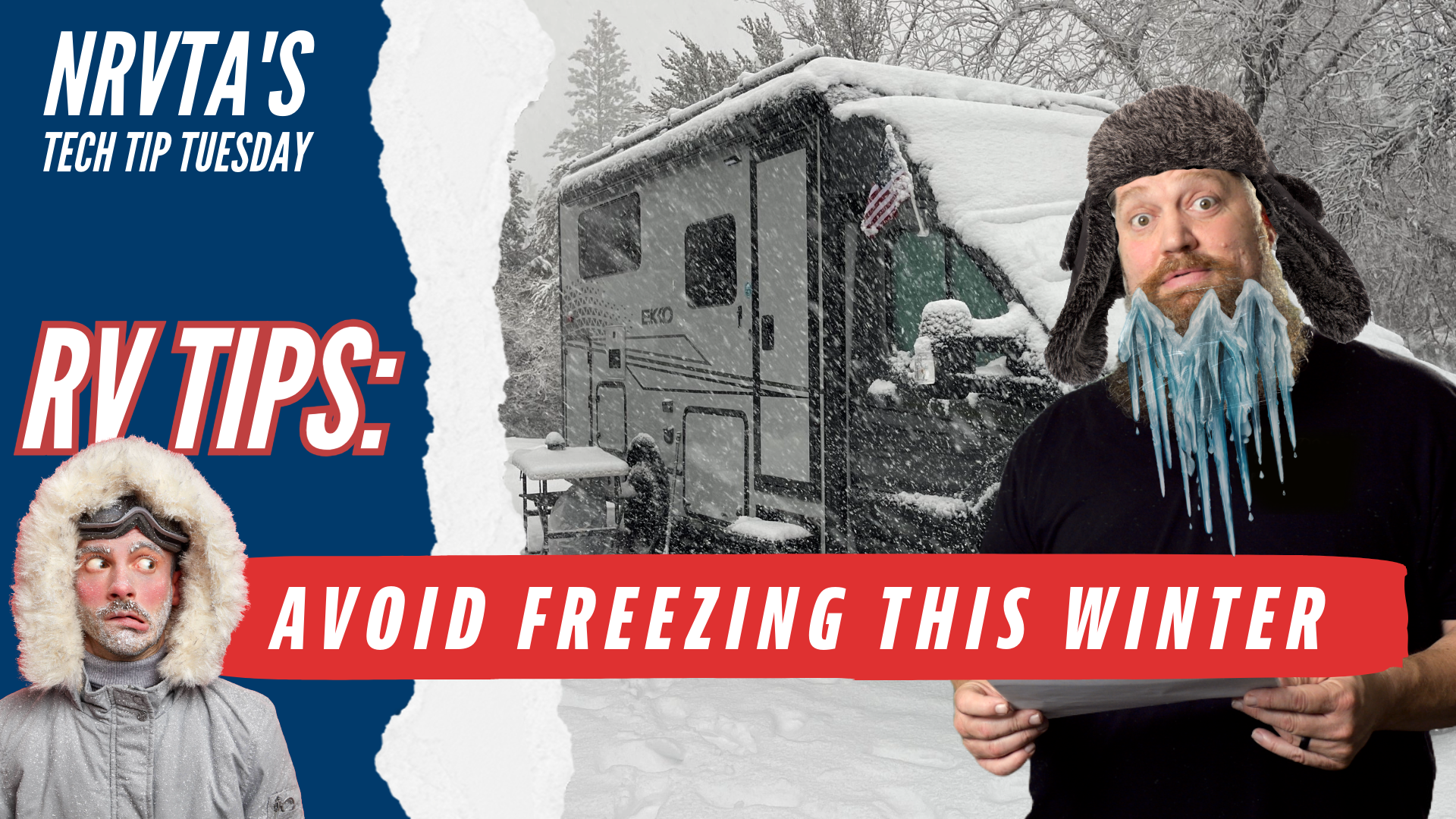Get your RV Technician Certification in as little as 5 weeks!

Welcome to another Tech Tip Tuesday, brought to you by the National RV Training Academy! Winter is upon us, and if you’re planning to brave freezing temperatures in your RV, you’ll need to take extra precautions to stay warm and protect your rig. Today, we’re covering two hot topics: heater safety and preventing your plumbing from freezing. Let’s dive into the details to keep your RV cozy and functional all winter long.
Space Heater Safety: Stay Warm Without Risk
Space heaters can be a great supplemental heat source in your RV, but only if used correctly. Improper use, such as plugging into the wrong outlets, can create safety hazards. Here’s what you need to know:
Key Guidelines for Safe Use
- Understand the Power Draw
- Most space heaters consume 1,500 to 1,700 watts.
- A typical RV outlet runs on a 15-amp breaker, providing about 1,800 watts total. However, multiple outlets often share the same breaker, so you’ll need to ensure no other devices are drawing power from the same circuit.
- Plug Directly into a Wall Outlet
- Avoid power strips and extension cords, as they aren’t designed to handle the high wattage of a space heater and can overheat or melt.
- Check Your Circuits
- Use a GFCI circuit tester to identify which outlets share the same breaker. Turn off the breaker and test each outlet to ensure only the space heater is using that circuit.
- Monitor the Space Heater
- Space heaters are best for heating a single space and should be turned down as the room warms up.
When Not to Rely on Space Heaters
If temperatures drop below freezing, space heaters won’t protect your RV’s plumbing. For such conditions, you’ll need to use your furnace to prevent freezing pipes.
Preventing Frozen Plumbing: Furnace First
Freezing weather poses a significant risk to your RV’s plumbing system. Here are steps to keep your water lines safe and functional:
1. Use Your Furnace for Line Protection
- Most RV furnaces are ducted to circulate heat into areas where water lines are located.
- Make sure your furnace is operational:
- Inspect and clean it before the cold weather sets in.
- Ensure you have enough propane to keep it running.
2. Disconnect Your Water Hose
- Switch from city water to your onboard holding tank.
- Drain your external water hose to remove any trapped water, as freezing can cause it to burst.
3. Fill Your Holding Tank
- Fill your tank to about three-quarters full. A full tank takes longer to freeze, providing you with more protection during prolonged cold spells.
4. Turn on Tank Heaters
- If your RV is equipped with tank heaters, activate them to prevent freezing in your holding tanks.
5. Thermostat Placement
- Avoid placing a space heater in the same room as your thermostat. If the space heater satisfies the thermostat, the furnace won’t kick on, leaving your water lines vulnerable.
Bonus Tip: Stay Warm at Night
Todd’s Heated Blanket Hack
A heated blanket is a game-changer for cold nights in your RV. To maximize comfort:
- Place the heated blanket under your fitted sheet.
- This method prevents cords from tangling and allows heat to rise, keeping you warm from below.
Not only will this keep you cozy, but you’ll also find yourself using less heat overall, making it a practical and energy-efficient solution.
Winter RV Survival Checklist
- ✅ Use your furnace when temperatures drop below freezing.
- ✅ Ensure sufficient propane supply and a clean furnace.
- ✅ Disconnect and drain your water hose.
- ✅ Fill your holding tank to at least three-quarters full.
- ✅ Turn on tank heaters, if available.
- ✅ Safely use a space heater, following the tips above.
- ✅ Keep warm with a heated blanket (under your fitted sheet for best results).
Conclusion
Winter RVing doesn’t have to be a challenge if you take the right precautions. With these tips, you can enjoy a warm, comfortable stay in your RV while protecting it from freezing weather. Remember, preparation is key—check your systems now before temperatures plummet.
For more helpful advice, subscribe to our YouTube channel and stay tuned for the next Tech Tip Tuesday. Safe travels and happy RVing!
Get Registered Today!
Talk to a student advisor to learn more!